Workshops and Tutorials
Paper presenters and conference attendees who have completed their paper/attendee registration can attend any of the workshops/Tutorials free of cost. However, they must fill out the workshop/Tutorial registration form available at the link below. While submitting the form, participants are required to upload their payment receipt for paper registration or conference attendee registration as proof.
All other participants have to pay fees and register to attend the workshops/Tutorial.
A separate certificate will be issued to all the participants of the workshop/tutorial.
Workshop 3 (SIGHT Workshop for Curious Kids) is specially for the school students at no registration fees.
Registration: Click here.
Workshop 1
Title: FBG-BASED INTEGRATED PHOTONIC SENSORS FOR HEALTHCARE APPLICATIONS
Click here to download the Flyer of Workshop.
Topics to be covered: Photonics, Four-Wave Mixing, Nonlinear Optics, Two-Photon Absorption, Silicon Photonics, Ring Resonators, Photonic Crystals, Photonics for Healthcare, AI in Photonics, Current Research Trends.
Schedule: 12th March 2026; 10:00am to 4pm
Registration: Click here.
Speakers:
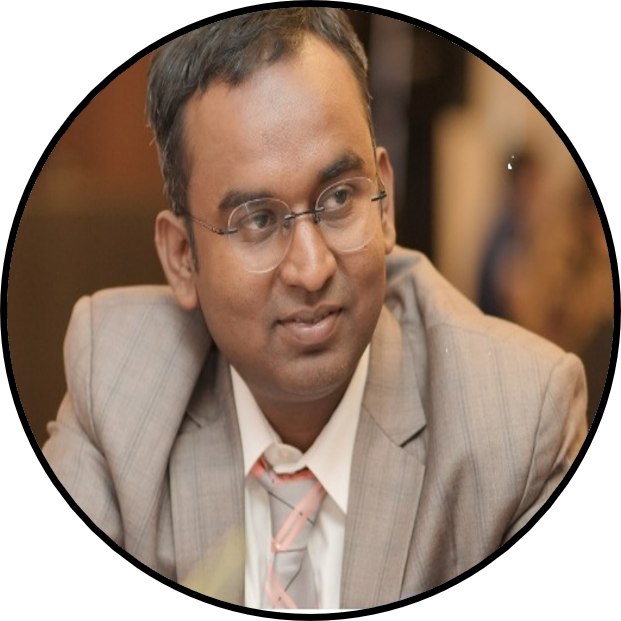
Dr. Gaurav Kumar Bharti, Associate Professor, Galgotias University, &
Visiting Faculty, TDTU Vietnam
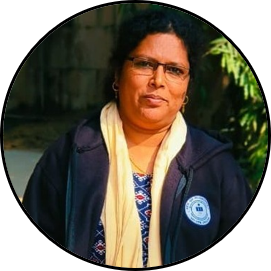
Dr. lbrar Jahan M. A, Associate Professor, RNSIT Bengaluru, India
Speakers Biography:
1. Dr. Gaurav Kumar Bharti
Dr. Gaurav Kumar Bharti is an Associate Professor at Galgotias University, Greater Noida. He earned his PhD in Photonics from NIT Agartala in 2020 and was an Institute Post-Doctoral Fellow at IIT Guwahati (2020–2021). He has been recognized among the top 2% scientists worldwide (Stanford–Scopus, 2023). Dr. Bharti has published over 40 research papers with nearly 450 citations (h-index: 12), authored two books and two book chapters, and holds two published Indian patents. His research interests include Photonics, Optical Sensors, Quantum Computing, Nonlinear Optics, and Cyber-Physical Systems. He has guided PhD and postgraduate students and is actively involved in sponsored research and industrial consultancy. A senior member of IEEE, OPTICA, and SPIE, he has held several IEEE leadership roles and received multiple awards, including Transformative Researcher of the Year (2022).
2. Dr. Ibrar Jahan M A
Dr. Ibrar Jahan M A is an Associate Professor in the Department of Electronics and Communication Engineering at RNS Institute of Technology, Bengaluru. She received her PhD in Photonics from VTU in 2022 and has over 22 years of teaching experience. She has published 35+ research papers, guided eight postgraduate students, and authored a textbook on Basic Electronics and Semiconductor Devices. Her research interests include Photonics, Sensors, VLSI, Machine Learning, Data Science, and Quantum Computing. A Senior Member of IEEE, she serves in leadership roles within the IEEE Photonics Society and Sensor Council, Bangalore Section. Dr. Jahan has received multiple Best Paper and Innovation Awards, secured national research grants exceeding ₹35 lakhs as Co-PI, and actively contributes to research mentoring, conferences, and faculty development programs.
Workshop 2
Title: Hands-On LaTeX for Efficient Research Papers Writing
Click here to download the Flyer of Workshop.
Topics to be covered: Introduction to LaTeX, LaTeX Document Structure and Basics, Mathematical Typesetting, Figures, Tables, and Algorithms, Bibliography and Citations, Research Paper Templates and Formatting, Cross-Referencing and Hyperlinks, Advanced LaTeX Features, Collaboration and Version Control, Error Handling and Debugging, Journal Submission and Compliance, Hands-On Practice and Mini Project
Schedule: 12th March 2026; 10:00am to 4pm
Registration: Click here.
Speakers:
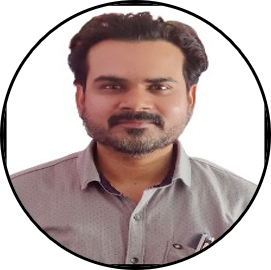
Dr. Sandesh Jain, Assistant Professor, ABV-IIITM Gwalior
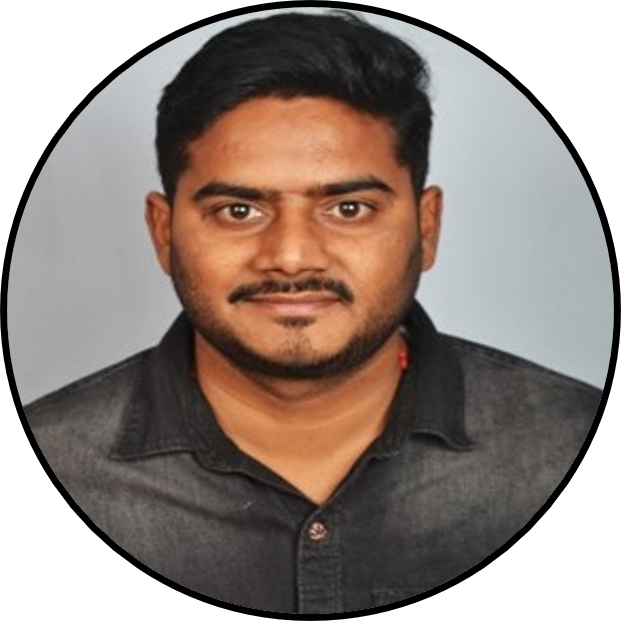
Dr. Praveen Singya, Assistant Professor, ABV-IIITM Gwalior
Speakers Biography:
1. Dr. Sandesh Jain
Sandesh Jain (Member, IEEE) is an Assistant Professor in the Department of Electrical and Electronics Engineering at ABV-IIITM Gwalior since February 2023. He received his PhD from IIT Indore in 2022 and was previously a Postdoctoral Fellow at IISc Bengaluru. He has over a decade of academic experience, including service as Assistant Professor at Medicaps University, Indore. Dr. Jain has published 30+ research papers in IEEE journals and conferences, holds one granted patent, and serves as a reviewer for several journals and conferences. His research interests focus on adaptive signal processing and machine learning for next-generation wireless communication systems.
2. Dr. Praveen Singya
Dr. Praveen Kumar Singya is an Assistant Professor in the Department of Electrical and Electronics Engineering at ABV-IIITM Gwalior, India, since February 2022. He received his PhD from IIT Indore and completed a postdoctoral fellowship at KAUST, Saudi Arabia, working with Prof. M.-S. Alouini. He has also conducted research at Ericsson AB, Sweden and served as a Research Associate at IIT Indore. His research focuses on wireless communications, including Free-Space Optics (FSO), Terahertz (THz) communication, Integrated Access and Backhaul (IAB), Hybrid Terrestrial-Satellite Networks, High Altitude Platforms (HAPs), and Intelligent Reflecting Surfaces (IRS). Dr. Singya is involved in multiple sponsored research projects on 6G communication technologies and has published extensively in leading IEEE journals and conferences. He serves as a reviewer for several high-impact IEEE publications.
Workshop 3
Title: SIGHT Workshop for Curious Kids. (Free Event for Kids)
Click here to download the Flyer of Workshop.
Topics to be covered: Welcome & Ice-Breaker, Science Around Us, Technology for Social Good, Hands-On Activity Stations, Creativity Meets Technology, Ethics, Safety & Responsibility, Career Inspiration.
Schedule: 12th March 2026; 10:00am to 4pm
Speakers:
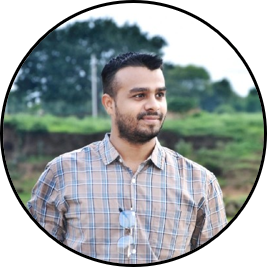
Mr. Yadvendra Prasad Dwivedi, Research Scholar, ABV-IIITM Gwalior, India
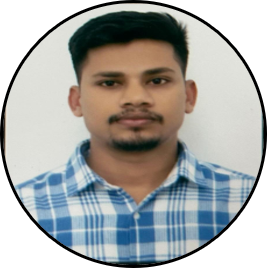
Mr. Jay Kumar Vagairya, Research Scholar, ABV-IIITM Gwalior, India
Registration: Click here.
Tutorial 1
Title: On-Chip antenna for Next Generation RFIC: Challenges, Design and Future Scope
Click here to download the Flyer.
Topics to be covered: Fundamentals of On-chip Antenna Design, Challenges in On-chip Antenna Design, Design Methodologies and Techniques, Successful Design Models, Future Directions and Emerging Trends, A Hands on Training Session on design and Simulation of On-chip antenna.
Schedule: 12th March 2026; 10:00am to 4pm
Registration: Click here.
Speakers:
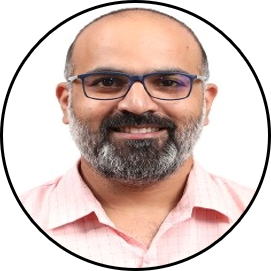
Dr. Harshavardhan Singh,
Department of Electronics & Communication Engineering, Amrita Vishwa Vidyapeetham, Coimbatore-641112
Dr. Singh received his B.E. (2010) from RGPV Bhopal and M.Tech. (2014) and PhD (2022) in Electronics and Communication Engineering from NIT Durgapur. He is currently an Assistant Professor in the Department of Electronics and Communication Engineering at Amrita Vishwa Vidyapeetham, Coimbatore. He has published 25+ papers in reputed journals and conferences and serves as a reviewer for Springer Nature, PIER, and several IEEE conferences. An active IEEE member and IEEE APS Society member, he has international research collaborations with institutions in Italy and Ireland. His research team was recently ranked among the top six worldwide in the IEEE-APS/URSI Student Design Contest 2025. His research interests include integrated and on-chip antennas, silicon-based antenna technology, and miniaturized smart antenna design.
